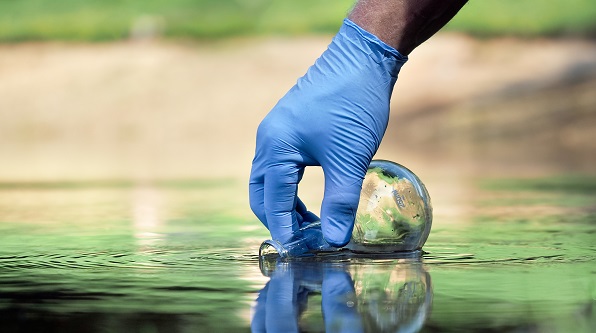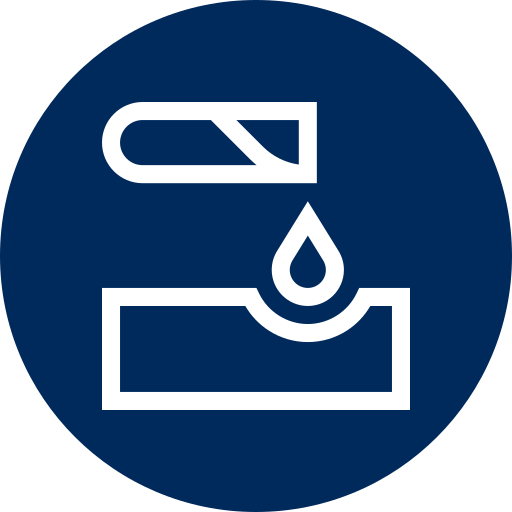Testing that Reaches the World
Industrial Waste Stream Testing
The Resource Conservation and Recovery Act (RCRA) was enacted as federal law in 1976 and constitutes the primary means for regulating waste materials. The costs of disposal or recovery of industrial waste streams in liquid and solid forms can be very expensive. Gaining knowledge and data of the composition of waste streams can drive down disposal costs, reduce a company’s environmental impact, and mitigate EPA/DEP scrutiny.

Clark Testing specializes in analysis of waste streams by determining the chemical composition enabling companies to either recycle or dispose of the material properly. The classification of the waste will determine the appropriate means for disposal. Clark’s team has worked closely with manufacturing, production and environmental companies to determine the appropriate methods to reduce environmental and health impacts of hazardous waste disposition.
Clark’s lab provides analysis of NAPL (Non-Aqueous Phase Liquids) or contaminants that do not dissolve easily or mix with water. This analysis is conducted on waste stream generated from oil & gas wells, underground & above grade storage tanks, as well as excavation sites contaminated by a mixture of solvents and water.
ASTM methods such as D971 are employed to measure the resistance of the solvent to mix with water. D971 measures the interfacial tension of the solution and water. Clark also measures viscosity using ASTM D445, Sulfur by XRF with D2622 and Density/Specific Gravity with D4052.
Based on certain test procedures, we are able to determine the chemical makeup of liquids and the ability of the liquids to dissolve in water. If the liquid solution is denser than water, it is considered DNAPL or, if the density of the liquid is lighter than water, such as gasoline, it is considered LNAPL.
Clark tests waste stream liquids for viability to determine the choices for recovery or waste disposal. Clark has been particularly active in providing testing services to the shale gas industry throughout the US. We have worked closely with environmental engineering consultants and production companies in support of waste cleanup and disposition.
Testing Services
Fuels and Lubrication
Clark Testing Fuel and Lubrication Testing Laboratory specializes in wear testing of products based on test rigs such as Four-Ball wear (D4172, D2266), Hydraulic Pump Wear (D7043), and FZG Gear (D4998, D5182, DIN 51354, and ISO 14635). Clark Testing Fuels and Lubricants Laboratory is fully equipped to perform tests ranging from routine analyses to quality control. With over 20 years of analytical experience, coupled with a stringent quality assurance program, this lab is dedicated to serving client requests on time.
Analytical Chemistry
Clark Laboratories analytical chemistry lab is an ISO/IEC 17025 accredited laboratory providing testing services to all industries on an array of materials. Testing is driven by client need of benchmark testing, product comparison, product verification, and failure analysis.
Industrial Hygiene
Clark Testing’s Industrial Hygiene Laboratory supports Environmental Health and Safety (EH&S) programs for varying industries. accredited by the AIHA Laboratory Accreditation Programs (AIHA LAP, LLC), we assist customers in selecting the proper NIOSH or OSHA method(s) necessary to carry out the appropriate sampling.
Particle Characterization
Clark’s particle testing services, combined with our analytical chemistry testing, allow our customers to benefit from one resource for material analysis: both chemical and physical properties. We provide such testing services to industries including: Agriculture, Medical/Pharma, Food & Beverage, Electronics, Energy, Primary Metals, and Heavy Industry. Materials include: catalysts, aluminas, propellants, ceramics, filters, cements, adsorbents, activated carbon, carbon black, paints/coatings, medical implants, electronic components, cosmetics, nanotubes, and many more.

